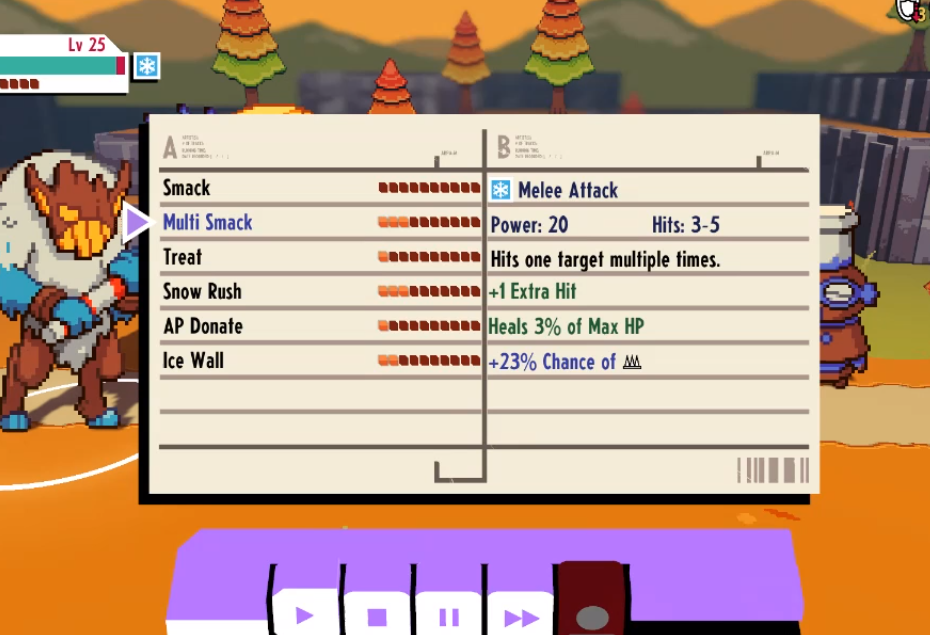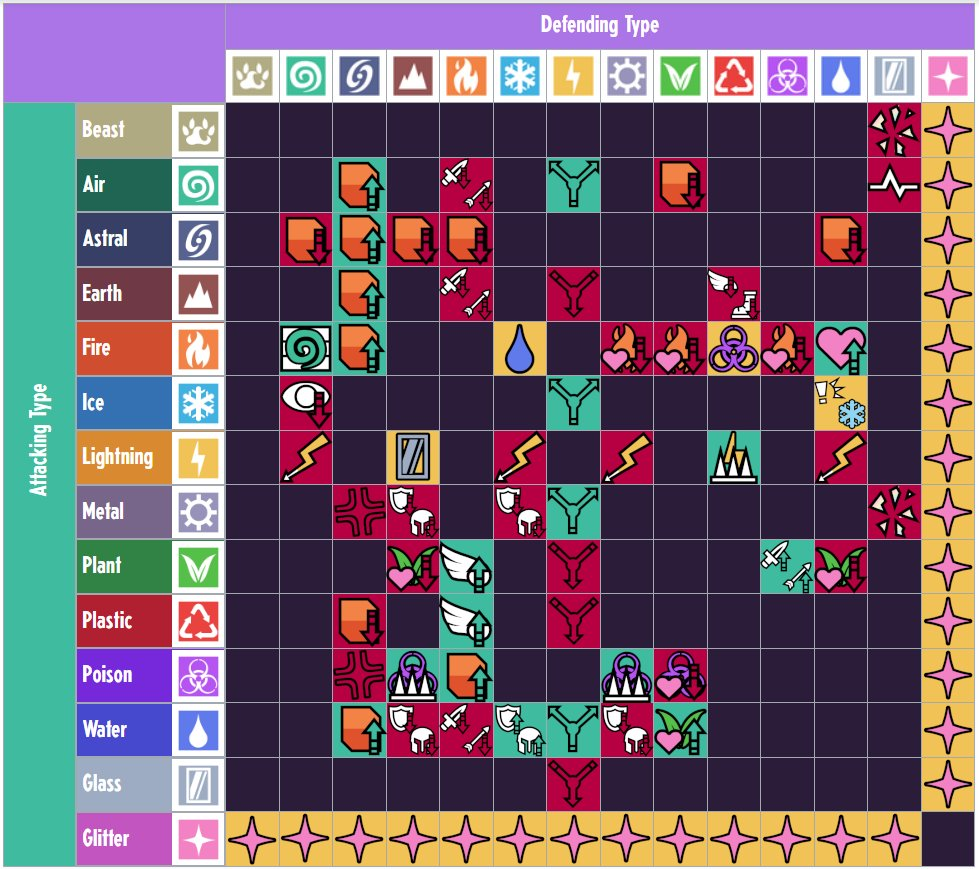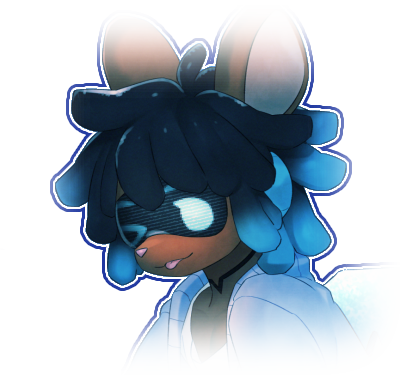It's puttin the based in turn-based!
May 11, 2023
I've recently been absolutely obsessed with Cassette Beasts, a surreal monster-catcher with a kinda lo-fi theme going on. What's continued to astound me is how well it meaningfully improves on the issues I've personally had with Pokémon as a jaded fan who craves something "meatier", yet it also isn't content with mere iteration and very much embraces its own unique, excellent ideas, which I love on their own merits.
One of the many major shifts is that Cassette Beasts smartly eschews Pokemon's "PP" system for a global "AP" system, which does a better job at encouraging gameplay diversity and averting "strategic complacency" in the player when going against the computer - something best exemplified by when you're stuck in the loop of using Flamethrower over and over on those poor NPCs because it's your strongest move and you have no honest reason to use the other three until you happen to get typechecked.

In Cassette Beasts, each mon starts with a set amount of AP, generates more each turn at a set rate, and various moves will consume it. What this means is that in order to build enough AP to use your strongest abilities, you need to not spend more AP than you'd regenerate. This involves whittling opponents down with weaker abilities - you may need to Spit a few times before you can build up enough AP to perform a Headshot. As a result, strong and weak abilities all have a use here - even the weakest ability on your monster will see use, because you need something to help you do damage or buff/debuff until you can ramp up to really start punching holes in your opponents. The way this system and curve works reminded me, of all things, Magic the Gathering, which has a mana system that also "ramps up" over the course of the game and prevents you from coming out swinging turn 1, forcing you to acknowledge the utility of everything in your deck and not just the move that is the strongest by pure numbers. Cassette Beasts is similarly elegant and fun, except rather than a deck of "cards" there is a deck of "moves", where you might consider the resource curve and how your abilities work together across all states of the game.
Aside from this, it has probably the most intricate elements/typing system I've ever seen, with advantages and disadvantages that don't stop at doing more/less damage. Using Fire attacks on an Ice monster "melts" them, which turns their typing into Water. Poison attacks on a Metal monster just coats their metal edges, giving them poison tips that hurt the next time they use a melee move. Plant types and Earth types "ground" Lightning types, causing their multi-target attacks to narrow down to a single target, on top of losing accuracy. Seeing an Ice monster, your process is no longer just "use Fire because it does more damage", it might be "use Fire because that'll melt it into Water so you can set it up to be sapped for health from your Plant-type attacks next". The staggering amount of effects and matchups seems overwhelming, but are fun and intuitive to both learn and put into practice, and really shake up the tried and true rock paper scissors structure of many advantage/disadvantage systems.

Alongside these big differences, there's other fun divergences and features, both big and small, that both further Cassette Beasts' identity as something fresh and add meaningful layers of depth to years of stagnant monster-catchers, while still keeping a straightforward and accessible core. I've neglected to mention up to this point that battles in CB are done with two active participants (a somewhat common approach with Pokemon-inspired monster catchers - for good reason, as Double Battles are where Pokémon shined its brightest imo), allowing the use of buffs and various synergies that wouldn't be done with a simple "one-in-one-out" system. . There's a "fusion" mechanic which works like a Limit Break of sorts, letting you combine you and your partner's monster for fun results while a great vocal mix of the current battle theme kicks in. "Shinies" in this game are "Bootlegs", which not only come in a great variety of colors and palettes, but change the original typing of that monster, allowing access to moves, abilities, and synergies they wouldn't normally have. The "Ranger Captains" - the games' equivalent of Gym Leaders - are not distinguished by the types of the monsters they use, but their preferred strategies, with Wallace, a construction worker, having a team based around protecting himself with walls, while Penny Dreadful relies on buffs that prevent her from getting hit and keeping her mons alive.
Wrapped in a gorgeous presentation, a great soundtrack, charming writing and some excellent creature designs, it's definitely rising up on my list of games that scratch the tasty turn-based itch. If you haven't already, do yourself a favor and check out Cassette Beasts.
